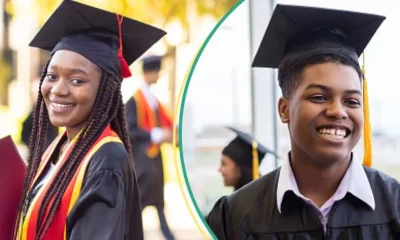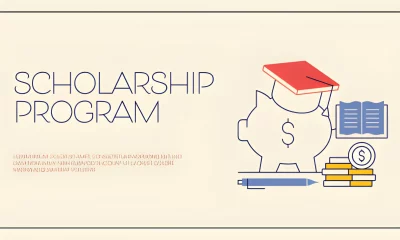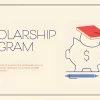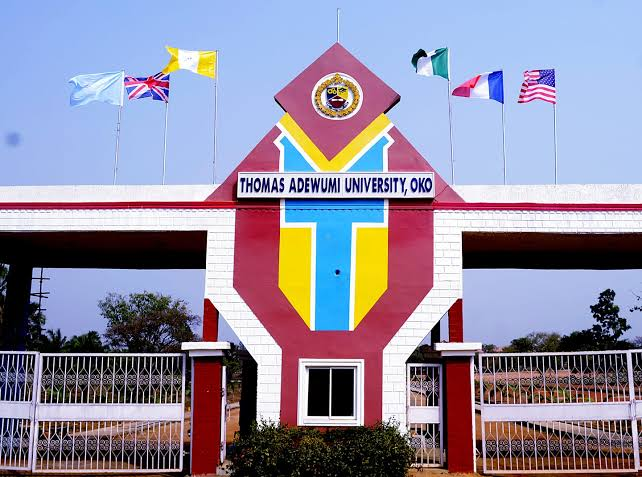Scholarships
Top 20 Best USA Scholarships in 2023 – World Ranking
Dreaming of a top-notch education in the USA? You’re not alone. But let’s face it, education in the States doesn’t come cheap. That’s where scholarships come in! We’re taking a deep dive into the Best USA Scholarships that can lighten the financial load and open the doors to opportunities galore.
What is a Scholarship and Why is it Important?
A scholarship is a financial aid awarded to students based on their academic or other achievements. It’s not just about the moolah though. Scholarships lend credibility to your resume and reflect your dedication and prowess in your field.
Talk about a win-win!
Best USA Scholarships
Many talented students from all over the world want to attend a top US college. However, high tuition may deter many students.
Many scholarships help cover tuition and other expenses.
These US scholarships will help you pay for college and achieve your academic goals. Graduate or undergraduate students can also apply for these scholarships to study in the US.
1. The Gates Scholarship
The Gates Scholarship is a highly selective, full scholarship for exceptional, Pell-eligible, minority high school seniors. Starting in 2018, the scholarship has been awarded to 300 top student leaders each year with the intent of promoting their academic excellence through college graduation and providing them the opportunity to reach their full potential.
Bill and Melinda Gates Foundation launched this scholarship program to help address the financial barrier preventing minority students from reaching their maximum potential. The scholars receive funding that fills the gap left after all other financial aid, including Pell Grants, scholarships, and Expected Family Contribution (EFC), has been applied.
The funding extends to not just tuition, but also covers other costs such as housing, meals, books, and transportation. Furthermore, the Gates Scholarship provides online support services designed to help Scholars excel in their degree programs, graduate, and make a successful transition to their chosen careers.
Who Can Apply:
Eligibility criteria for the Gates Scholarship include:
- The applicant must be a high school senior.
- The applicant must be from one of the following ethnicities: African-American, American Indian/Alaska Native*, Asian & Pacific Islander American, and/or Hispanic American.
- Pell-eligible (A federal Pell Grant is money the government provides for students who need it to pay for college).
- The applicant must be a US citizen, national, or permanent resident.
- In good academic standing with a minimum cumulative weighted GPA of 3.3 on a 4.0 scale (or equivalent).
- The applicant must plan to enroll full-time, in a four-year degree program, at a US-accredited, not-for-profit, private or public college or university.
Please note: For American Indian/Alaska Native, proof of tribal enrollment will be required.
Applicants should also demonstrate leadership ability through participation in community service, extracurricular activities, and other areas. Additionally, they should exhibit exceptional personal success skills such as perseverance, emotional intelligence, and self-discipline.
2. The Coca-Cola Scholars Program:
The Coca-Cola Scholars Program is a scholarship initiative sponsored by the Coca-Cola company and its associated philanthropies. This program is an achievement-based scholarship awarded to graduating high school seniors each year. Since 1986, this program has been helping students achieve their college dreams by providing generous financial support.
The Coca-Cola Scholars Foundation annually awards 150 college scholarships worth $20,000 to high school students across the United States through the Coca-Cola Scholars Program. Scholars are selected based on their capacity to lead and serve, and their commitment to making a significant impact on their schools and communities.
Who Can Apply:
Eligibility criteria for the Coca-Cola Scholars Program include:
- Current high school (or home-schooled) student attending a school in the United States (or select DoD schools) who will graduate during the academic school year.
- U.S. Citizens, U.S. Nationals, U.S. Permanent Residents, Refugees, Asylees, Cuban-Haitian Entrants, or Humanitarian Parolees – based on the guidelines utilized by U.S. Department of Education for Federal Financial Aid eligibility.
- Will receive a high school diploma during the academic school year.
- Planning to pursue a degree at an accredited U.S. post-secondary institution.
Applicants cannot be children or grandchildren of employees, officers, or owners of Coca-Cola bottling companies, The Coca-Cola Company, Company divisions or subsidiaries.
Coca-Cola Scholars are evaluated on their academic excellence, leadership, and service demonstrated in school and community activities.
3. Jack Kent Cooke Foundation College Scholarship Program
The Jack Kent Cooke Foundation’s College Scholarship Program is an undergraduate scholarship program available to high-achieving high school seniors with financial need who seek to attend and graduate from the nation’s best four-year colleges and universities.
Selected scholars will receive funding for tuition, room and board, books, and other required fees. The amount and duration of awards vary by individual, based on the cost of tuition as well as other grants or scholarships they may receive. The maximum per-student award is up to $40,000 per year.
In addition to the monetary award, Cooke College Scholars receive comprehensive educational advising, supportive programming to ease the transition to college and guide them through the challenges of college life, and opportunities for internships, study abroad, and graduate school funding.
Who Can Apply:
Eligibility criteria for the Jack Kent Cooke Foundation College Scholarship Program include:
- Senior standing – Plan to graduate from a U.S. high school in the spring.
- Fall College Enrollment – Intend to enroll in an accredited four-year college beginning in the fall.
- GPA – Earn a cumulative unweighted GPA of 3.5 or above.
- Test Scores – Receive a minimum SAT total of 1200 or ACT composite of 26.
- Income – Demonstrate significant unmet financial need. They will consider applicants with family income up to $95,000. However, they anticipate that a majority of scholarship recipients will be eligible to receive a Pell grant.
- This scholarship program is open to individuals residing in all 50 states and the District of Columbia.
Applicants are evaluated on factors such as exceptional academic abilities and achievements, persistence, leadership, and desire to help others.
4. National Merit Scholarship Program
The National Merit Scholarship Program is an academic competition for recognition and scholarships that began in 1955. High school students enter the National Merit Program by taking the Preliminary SAT/National Merit Scholarship Qualifying Test (PSAT/NMSQT)–which serves as an initial screen of approximately 1.6 million entrants each year–and by meeting published program entry and participation requirements.
Scholars are selected based on their high academic performance in college preparatory coursework, qualifying test scores, recommendations from the high school, the student’s activities and leadership, and the finalist’s own essay.
There are three types of National Merit Scholarships:
- National Merit $2500 Scholarships: Every finalist competes for these single payment scholarships, which are awarded on a state-representational basis.
- Corporate-sponsored Merit Scholarship awards: These are designated by corporate sponsors for finalists who meet criteria specified by the sponsor.
- College-sponsored Merit Scholarship awards: These are offered by college officials to finalists who have been admitted to and plan to enroll in the sponsor college or university.
Who Can Apply:
Eligibility criteria for the National Merit Scholarship Program include:
- The applicant must take the PSAT/NMSQT in the specified year of their high school program and no later than the third year in grades 9 through 12.
- The applicant must be enrolled full-time as a high school student, progressing normally toward graduation or completion of high school, and planning to accept admission to college no later than the fall following completion of high school.
- The applicant must be a citizen of the United States or be a U.S. lawful permanent resident (or have applied for permanent residency, the application for which has not been denied) and intend to become a U.S. citizen at the earliest opportunity allowed by law.
Please note: To be considered for a National Merit Scholarship, Semifinalists have to fulfill several requirements and advance to the Finalist level of the competition.
5. The Boren Awards:
The Boren Awards, an initiative of the National Security Education Program (NSEP), provide unique funding opportunities for U.S. undergraduate and graduate students to study less commonly taught languages in world regions critical to U.S. interests and underrepresented in study abroad. These regions include Africa, Asia, Central and Eastern Europe, Eurasia, Latin America, and the Middle East.
Boren Scholars and Fellows represent a vital pool of highly motivated individuals who wish to work in the federal national security arena, and program alumni are contributing to the critical missions of agencies throughout the Federal Government.
The maximum scholarship award for undergraduates (Boren Scholars) is $20,000 for an academic year’s study abroad. For graduate students (Boren Fellows), the maximum award is $30,000 for overseas study.
Who Can Apply:
Eligibility criteria for the Boren Awards include:
- For Boren Scholars (undergraduates), they must be a U.S. citizen at the time of application and a high-school graduate, or have earned a GED, and matriculated in an undergraduate degree program located within the United States accredited by an accrediting body recognized by the U.S. Department of Education. Boren Scholars must remain matriculated in their undergraduate programs for the duration of the scholarship and may not graduate until the scholarship is complete.
- For Boren Fellows (graduate students), they must either be matriculated in or applying to a graduate degree program at an accredited U.S. college or university located within the United States and remain matriculated in their graduate programs for the duration of the fellowship.
The Boren Awards seek applicants who are planning a career in the federal national security arena, are interested in studying languages and cultures that are critical to U.S. interests, and are highly motivated by the opportunity to work in the federal government.
Recipients of Boren Awards commit to working in the federal government for at least one year after graduation as part of the NSEP service requirement.
6. Regeneron Science Talent Search
The Regeneron Science Talent Search, formerly known as the Westinghouse Science Talent Search, and then the Intel Science Talent Search (Intel STS), is one of the oldest and most prestigious science research competitions for high school seniors in the United States. It is a program of Society for Science, and it has been sponsored by Regeneron Pharmaceuticals since 2016.
Every year, students enter the competition and submit original research in critically important scientific fields of study. They are judged by leading experts in their fields. Unique among high school competitions in the U.S. and around the world, the Regeneron STS focuses on identifying, inspiring, and engaging the nation’s most promising young scientists.
Scholars and their schools are awarded based on students’ exceptional research skills, commitment to academics, innovative thinking and promise as scientists. The Top 300 scholars and their schools collectively receive $1.2 million; each of the Top 40 finalists (who are invited to present their work and compete in person at the Regeneron STS) receives at least $25,000, with the top award being $250,000.
Who Can Apply:
Eligibility criteria for the Regeneron Science Talent Search include:
- The applicant must be enrolled in and attending his or her last year of secondary school (public, private, parochial, or home school).
- The applicant must be a citizen or a permanent resident of the United States, or a U.S. national residing in a commonwealth or territory of the United States.
- The applicant must have conducted independent scientific research.
The project could involve experimental, theoretical, or observational techniques from various scientific disciplines. Projects from all scientific disciplines are welcome, including interdisciplinary projects. The competition is known for its rigorous entry requirements and has strict rules around originality and authorship, and it requires a significant time commitment from participating students.
7. The Rhodes Scholarships:
The Rhodes Scholarships are postgraduate awards supporting outstanding students from around the world to study at the University of Oxford, United Kingdom. Established in the will of Cecil Rhodes in 1902, the Rhodes is the oldest and perhaps the most prestigious international scholarship program in the world.
A Rhodes Scholarship covers all university and college fees, a personal stipend, health insurance, and airfare to and from the scholar’s home country and the United Kingdom. Beyond covering the cost of study, the scholarship program also includes a retreat in the country, conferences, discussion events, and an emphasis on social service.
Rhodes Scholars are selected for their outstanding scholarly achievements, their character, their commitment to the common good, and their potential for leadership in their careers.
Who Can Apply:
Eligibility criteria for the Rhodes Scholarships vary slightly from country to country, but there are some general eligibility requirements:
- The applicant must be a citizen or legal permanent resident of an eligible Rhodes country.
- At the time of applying, the applicant must be at least 18 but not yet 24 years of age (there are some variations on the upper age limit depending on the constituency).
- The applicant must have completed (or will have completed by the time they take up the Scholarship) an undergraduate degree with a high level of academic achievement – usually equivalent to at least a GPA of 3.70 or above.
In addition to the basic eligibility criteria, applicants must demonstrate exceptional achievement in academics, good energy to use their talents to the full, truth, courage, devotion to duty, sympathy for the protection of the weak, kindliness, unselfishness and fellowship, and moral force of character and instincts to lead, and to take an interest in their fellow beings.
Each national Rhodes organization has slightly different eligibility rules, application requirements, and deadlines, so students should check the specific rules for their own country.
9. Fulbright U.S. Student Program
The Fulbright U.S. Student Program is a prestigious international exchange program sponsored by the U.S. government. It was established in 1946 to increase mutual understanding between the people of the United States and other countries, through the exchange of persons, knowledge, and skills.
The program offers research, study, and teaching opportunities in over 140 countries to recent graduates and graduate students. It operates in more than 155 countries worldwide and awards approximately 1,900 grants annually.
Awards typically cover round-trip transportation, maintenance for the academic year, health and accident insurance, and full or partial tuition. The program offers two types of grants: the research/study grants and the English Teaching Assistant (ETA) Programs.
Who Can Apply:
Eligibility criteria for the Fulbright U.S. Student Program include:
- The applicant must be a U.S. citizen at the time of application.
- The applicant must have a conferred bachelor’s degree or the equivalent before the start of the grant.
- In the creative and performing arts, four years of professional training and/or experience meets the basic eligibility requirement.
- The applicant must be in good health. Grantees will be required to submit a satisfactory Medical Certificate from a physician.
- The applicant must have sufficient proficiency in the written and spoken language of the host country sufficient to communicate with the people and to carry out the proposed study/research.
Please note: For specific programs, there might be additional eligibility criteria.
Applicants are selected based on a variety of factors, including the quality and feasibility of their proposal, their academic record, personal qualifications, and language preparation. The selection process also considers the applicant’s ability to be a good cultural ambassador abroad.
10. Hispanic Scholarship Fund (HSF)
The Hispanic Scholarship Fund (HSF) is the nation’s leading provider of scholarships and services designed to support Hispanic Americans. Since its founding in 1975, the organization has awarded over $500 million in scholarships, with an annual award amount of over $30 million.
HSF provides scholarships to students of Hispanic heritage seeking to earn a bachelor’s degree from accredited universities in the United States. Awards are based on merit, and amounts range from $500 to $5,000, based on the student’s relative need.
Besides scholarships, the HSF also offers support services to guide students and their families through the entire college, graduate school, and professional journey. They provide a wide array of comprehensive programs to ensure students have the resources they need to graduate, including career services, mentorship, leadership development, knowledge building, and wellness training.
Who Can Apply:
Eligibility criteria for the Hispanic Scholarship Fund include:
- The applicant must be of Hispanic heritage.
- The applicant must be a U.S. citizen, permanent legal resident, or DACA.
- The applicant must have a minimum of a 3.0 GPA on a 4.0 scale (or equivalent) for high school students; a minimum of a 2.5 GPA on a 4.0 scale (or equivalent) for college and graduate students.
- The applicant must plan to enroll full-time in an accredited, public or not-for-profit, four-year university, or graduate school, in the U.S., during the fall of the scholarship cycle year.
- The applicant must submit a FAFSA or state-based financial aid forms (if applicable).
HSF scholarships are designed to assist students of Hispanic heritage to obtain a college degree, and selections are based on academic achievement, personal strengths, leadership, and commitment to giving back to the community.
11. The Rotary Foundation’s Rotary Peace Fellowships:
The Rotary Peace Fellowship is a program of The Rotary Foundation that aims to promote peace and resolve conflicts among nations and peoples. Each year, Rotary selects up to 130 peace and development leaders from around the world to receive fully funded academic fellowships at one of their peace centers. These fellowships cover tuition and fees, room and board, round-trip transportation, and all internship and field-study expenses.
There are two types of peace fellowships available:
- Master’s degree programs: Lasts 15 to 24 months and requires a practical internship of 2 to 3 months during the academic break.
- Professional development certificate program: For experienced professionals and lasts three months with two to three weeks of field study.
The programs take place at one of the Rotary Peace Centers, which are located at premier universities in the U.S., Japan, the UK, Australia, Sweden, and Thailand.
Who Can Apply:
Eligibility criteria for The Rotary Foundation’s Rotary Peace Fellowships include:
- The applicant must have a bachelor’s degree or the equivalent, with strong academic achievements.
- The applicant must have a minimum of three years of paid or unpaid full-time relevant work experience for the master’s program, and five years for the professional development certificate.
- The applicant must demonstrate a commitment to peace and conflict resolution.
- The applicant must be proficient in English; proficiency in a second language is strongly recommended for the master’s program.
- The applicant must exhibit leadership skills and potential.
- The applicant must show a strong commitment to international understanding and peace, expressed through professional and academic achievements, as well as personal and community service activities.
Please note that persons connected with Rotary (Rotarians, employees of Rotary clubs, Rotary International, or other Rotary entities) are restricted from applying, so it’s advisable to check specific eligibility requirements on the official Rotary website.
12. Fulbright Foreign Student Program
The Fulbright Foreign Student Program is a prestigious international educational exchange program, sponsored by the U.S. government. This program enables graduate students, young professionals, and artists from abroad to study, conduct research, and/or teach their native language in the U.S.
The Fulbright Foreign Student Program operates in more than 155 countries worldwide. Approximately 4,000 foreign students receive Fulbright scholarships each year. The program provides funds for course tuition, airfare, a living stipend, and health insurance, etc.
The program promotes the mutual exchange of understanding and knowledge between people of the United States and other countries, and it’s known for producing alumni who achieve distinction in government, science, the arts, business, philanthropy, education, and athletics.
Who Can Apply:
Eligibility criteria for the Fulbright Foreign Student Program include:
- The applicant must have completed undergraduate education and hold a degree equivalent to a bachelor’s degree.
- The selection process varies by country and often involves a rigorous application and interview process. Each country has different eligibility criteria, application procedures, and deadlines, so applicants must check specific details from the Fulbright Commission or U.S. Embassy in their home countries.
- The applicant must have the proficiency in English necessary for successful study in the United States.
Program eligibility and selection procedures vary widely by country. Please refer to the country-specific websites to find information about the Fulbright Program in your home country, including eligibility requirements and application guidelines.
Fulbright recipients are expected to excel academically and to be outstanding ambassadors for their home country in the U.S. After completing their studies, scholars are expected to return to their home countries to share their experiences and knowledge gained during their Fulbright Program.
13. AAUW International Fellowships
The American Association of University Women (AAUW) International Fellowships are awarded to women pursuing full-time graduate or postdoctoral study in the United States who are not U.S. citizens or permanent residents.
The AAUW has been one of the largest funders of educational support for women since 1888. The International Fellowships program is significant because of its promotion of women from around the world who are aiming to use their graduate studies to make an impact either in their home countries or in the global community.
The fellowship offers funds for education and living expenses to recipients, the amount ranging from $18,000 for a Master’s, $20,000 for a Ph.D., and $30,000 for Postdoctoral research.
Who Can Apply:
Eligibility criteria for the AAUW International Fellowships include:
- The applicant must be a woman and not a U.S. citizen or permanent resident.
- The applicant must have earned the equivalent of a U.S. bachelor’s degree and must have applied to their proposed institutions of study by the time of the application.
- The applicant must be intending to devote herself full-time to the proposed academic plan during the fellowship year.
- The applicant must intend to return to her home country to pursue a professional career.
- The applicant must be proficient in English.
In selecting fellowship recipients, reviewers consider the applicant’s academic qualifications, as well as her commitment to women and girls in her home country. An applicant must be clear in the written application about how she will use her study to bring about positive change.
14. New York State Excelsior Scholarship:
The Excelsior Scholarship, introduced in 2017, allows eligible students to attend a SUNY or CUNY college tuition-free. It was the first program of its kind in the United States to offer tuition-free college at public universities.
Who Can Apply
To be eligible, students must be residents of New York State, plan to attend a SUNY or CUNY two- or four-year degree program, take 30 credits per year (including Summer and January semesters), and meet certain income criteria.
15. New York State Tuition Assistance Program (TAP):
The Tuition Assistance Program is a grant for New York State residents attending colleges and universities within the state. It helps eligible New York residents pay tuition at approved schools in New York State.
Who Can Apply
To be eligible, an applicant must be a U.S. citizen or eligible non-citizen, a legal resident of New York State, have graduated from high school in the United States, be enrolled as a full-time student taking at least 12 credits per semester, and meet certain income criteria.
16. New York State Scholarships for Academic Excellence:
This scholarship provides tuition awards to outstanding New York State high school graduates. Each year, 8,000 scholarships are awarded – 2,000 scholarships of $1,500 and 6,000 scholarships of $500.
Who Can Apply
Recipients are selected based on a formula that includes Regents test scores. The student must plan to attend a New York State postsecondary institution.
Please note that the specifics of each program can change from year to year, and there may be additional requirements for each scholarship. Therefore, it’s always a good idea to check the official New York State Higher Education Services Corporation (HESC) website or consult with a school’s financial aid office for the most current information.
17. California State University System Scholarships
The California State University (CSU) system offers a variety of scholarships for students attending its universities. The specifics of these scholarships may vary based on the campus, the level of study, the student’s major, and other factors. Here are a few examples of scholarships that may be available across the CSU system:
- Middle Class Scholarship (MCS): This scholarship provides undergraduate students, including students pursuing a teaching credential, with family incomes and assets up to $177,000 a scholarship to attend University of California (UC) or CSU campuses.
- State University Grant (SUG): This grant helps cover the tuition fee for eligible undergraduate and graduate students who are California residents or meet AB540/SB68 criteria.
- Sally Casanova Pre-Doctoral Scholarship: This scholarship is for juniors, seniors, and graduate students in the CSU system who have the potential to succeed in doctoral programs. The award helps to fund visits to prospective doctoral institutions, travel to professional meetings, membership in professional organizations, graduate school applications, and test fees.
- CSU Trustees’ Award for Outstanding Achievement: These are system-wide scholarships provided to students who demonstrate financial need, experienced personal hardships, and have attributes of merit including superior academic performance, significant personal achievements, and exemplary community service.
The CSU campuses may also offer individual scholarships based on academic excellence, financial need, leadership, community service, and other factors. Each campus has a financial aid office, and many have scholarship offices that provide information about these opportunities.
It’s important to note that most scholarships require a separate application, and the criteria, application process, and deadlines can vary greatly. Therefore, it’s recommended that students research each scholarship thoroughly and start the application process early.
18. Microsoft Disability Scholarship
The Microsoft Disability Scholarship was established to empower and enable high school students with disabilities to go to college, realize the impact technology can have on the world, and target a career in the technology industry.
This scholarship will be awarded to promising high school seniors who plan to attend a vocational or academic college and have a financial need. The amount of this scholarship is $5,000 per year, up to $20,000 total, which is paid through the Seattle Foundation on behalf of Microsoft.
Who Can Apply
Eligibility criteria for the Microsoft Disability Scholarship include:
- The applicant must be a current high school senior living with a disability (as defined by WHO), whether that be visual, hearing, mobility, cognitive, speech, or other disability.
- The applicant must plan to attend an undergraduate program in a 2 or 4-year University/College or Technical College in the fall of the academic year following high-school graduation. Schools must be in the USA or have a USA affiliate for financial transactions (contact Seattle Foundation to verify non-USA school’s eligibility).
- The applicant must declare a major in engineering, computer science, computer information systems, law, business, or a related field.
- The applicant must have a demonstrated a passion for technology.
- The applicant must have demonstrated leadership at school or in the community.
- The applicant must have a high school cumulative GPA of 3.0 or higher.
- The applicant must require financial assistance to attend college.
- The applicant must be enrolled in a college or university in the United States (including Puerto Rico).
Enrollment status must be full-time or half-time
19. Dell Scholars Program
The Dell Scholars Program is an initiative of the Michael & Susan Dell Foundation, which was established in 2004. The scholarship program is more than just a financial aid program; it’s a college completion program that offers personalized, multifaceted support to its scholars. The program recognizes students who have overcome significant obstacles to pursue their educations.
In essence, the program awards 300 scholarships annually, and each Dell Scholar receives $20,000, a laptop, and textbook credits. Scholars also have access to various resources, including a support network, that help them in overcoming emotional, lifestyle, and financial challenges they may encounter while in college.
Who Can Apply:
Eligibility criteria for the Dell Scholars Program include:
- The applicant must be participating in a Michael & Susan Dell Foundation approved college readiness program in grades 11 and 12.
- The applicant must be graduating high school this current academic year.
- The applicant must have earned a minimum of a 2.4 GPA.
- The applicant must be eligible to receive a federal Pell Grant in the first year of college.
- The applicant must be planning to enroll full-time in a bachelor’s degree program at an accredited higher education institution in the fall directly after graduation from high school.
The Dell Scholars Program places greater emphasis on a student’s determination to succeed than their academic record and test scores. That determination may take the form of managing a part-time job, extracurricular activities, challenging life circumstances, and community service.
20. The Excelsior Scholarship
The Excelsior Scholarship, established by the State of New York, provides tuition awards to eligible students attending New York State’s public universities (SUNY) and colleges (CUNY). The program was created to ensure that more residents of New York State can afford a college education, and it aims to cover the cost of tuition left after other grants or scholarships.
It was one of the first programs in the United States to offer tuition-free college at public universities. The scholarship does not cover fees, room and board, or other expenses.
Who Can Apply
Eligibility criteria for the Excelsior Scholarship include:
- The applicant must be a resident of New York State.
- The applicant must be a U.S. citizen or eligible non-citizen.
- The applicant must have graduated from a high school in the United States or have a high school equivalency diploma.
- The applicant must plan to attend a SUNY or CUNY two- or four-year college.
- The applicant must be pursuing an undergraduate degree.
- The applicant must take 30 credits per year (including Summer and January semesters), but exceptions can be made for students facing hardship.
- The applicant must meet certain income criteria, which as of my last update in September 2021, was a household income of up to $125,000 per year.
- The applicant must agree to live in New York State for the number of years equal to awards received following graduation.
Best USA Scholarships – FAQs
[accordions title=”Best USA Scholarships – FAQs”] [accordion title=”1. Can international students apply for these scholarships?” load=”show”]Yes, several scholarships are available for international students. However, the criteria and eligibility vary for each scholarship.[/accordion] [accordion title=”2. When is the best time to apply for scholarships?” load=”hide”]It’s best to start as early as possible, preferably at the beginning of your final year in high school.[/accordion] [accordion title=”3. How competitive are these scholarships?” load=”hide”]Most of these scholarships are quite competitive due to the large number of applicants and the prestige of the scholarship.[/accordion] [accordion title=”4. Can I apply for multiple scholarships at once?” load=”hide”]Yes, you can apply for as many scholarships as you are eligible for.[/accordion] [accordion title=”5. Do I have to repay the scholarships?” load=”hide”]No, scholarships are a form of financial aid that you do not have to repay.[/accordion] [accordion title=”6. What’s the easiest way to find scholarships?” load=”hide”]Your best bet is to start with a scholarship search engine like Fastweb or Scholarships.com, which can provide a personalized list of scholarships based on your criteria.[/accordion] [accordion title=”7. Do I have to be a top student to win a scholarship?” load=”hide”]Not necessarily! Many scholarships aren’t just about grades. They consider aspects like community service, leadership, and specific talents.[/accordion] [accordion title=”8. Can I get a scholarship for graduate school?” load=”hide”]Absolutely! Plenty of scholarships and fellowships support graduate studies.[/accordion] [accordion title=”9. Do I have to pay back scholarship money?” load=”hide”]No, scholarships are a form of gift aid, meaning you don’t have to repay them.[/accordion] [accordion title=”10. Are scholarships taxable?” load=”hide”]Scholarships used for tuition and required fees are generally not taxable. However, money used for room and board or travel can be considered taxable income.[/accordion] [accordion title=”11. Can international students get scholarships?” load=”hide”]Yes, many scholarships are open to international students. It’s best to check the specific requirements of each scholarship.[/accordion] [/accordions]Best USA Scholarships – Wrapping Up
Education is an investment in your future, and scholarships can help you fund that investment. By understanding and applying for the Best USA Scholarships, you’re taking a crucial step towards achieving your educational and career goals.
See what others are reading:


















